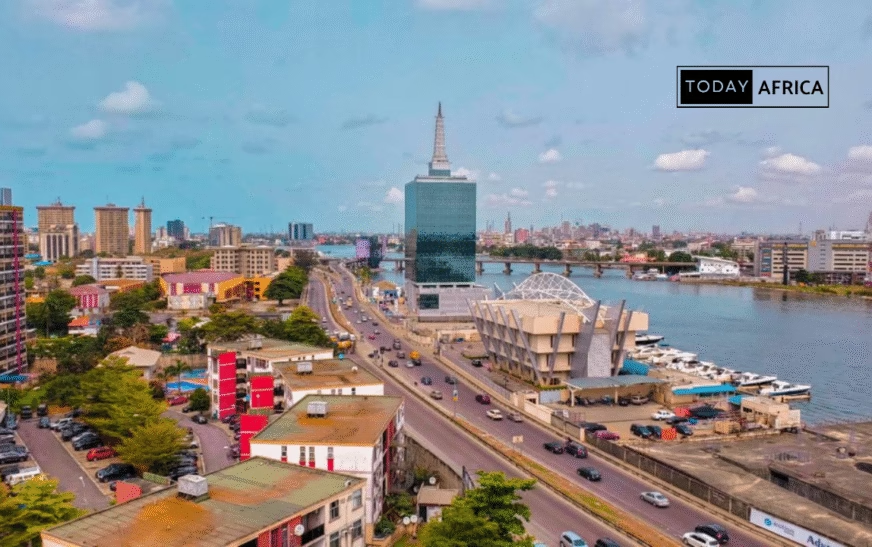Somewhere between a founder’s first seed cheque and their big dream of expansion, something tends to break. It’s rarely a single thing.
Sometimes it’s cash flow. Sometimes it’s regulatory quicksand. And sometimes it’s simply that what worked well in Lagos makes no sense in Nairobi.
The result is a familiar story across the continent of ambitious startups that raised rounds, made headlines, and then stalled when it’s time to scale.
Right now, that tension feels especially urgent. The African tech ecosystem is maturing.
Investors are more cautious, the funding boom has cooled, and founders are being asked tougher questions about sustainability. It’s no longer enough to have a clever idea or local traction.
The real test, the one that decides who endures, is whether a company can grow beyond its comfort zone without collapsing under its own weight.
This isn’t just a startup problem; it’s a continental one. If African innovation is to drive the next decade of growth, startups must learn not just to start, but to scale well.
The scaling gap: more than growing bigger
Scaling isn’t simply doing more of the same business in more places. It’s about expanding successfully: product-market fit, operational systems, finance, regulation, and people, all must keep pace.
For African startups, that might mean moving from serving users in one city to dozens of countries; from 100 customers to 10,000; from manual systems to automated, scalable ones. That leap is where many stumble.
As a Techcabal report puts it:
“The invisible walls stunting African startups” are not the flashy ones—but the ones behind logistics, regulation, financial systems and markets. In other words, it’s not necessarily a lack of ambition, but the accumulation of hurdles that makes scaling the difference between a promising startup and an enduring company.
So let’s unpack the key obstacles.
Funding & growth-stage capital
Many African startups find seed funding. Fewer find the large Series A/B rounds that allow them to scale deeply.
For Nigerian startups, moving beyond Series A is cited as a major gap. And more broadly, “Access to growth capital” remains a bottleneck for scaling leaders.
Why? One reason is risk; many investors see African markets as fragmented, volatile (currency, regulation), and hard to scale quickly. Another is metrics; data gaps mean that due diligence takes longer or fails.
One TechCabal article noted that 80% of African startups struggle to access early-stage funding because of a lack of reliable data.
So startups that want to scale need two things: large amounts of capital and proven metrics that justify that investment, and too often they have one without the other.
Market fragmentation & localisation
Africa is many markets, not one monolith. Different languages, cultures, regulatory frameworks, payment and trust systems.
Scaling across Africa means localisation, not just launching in Kenya and assuming Nigeria will copy-paste. As noted, over 2,000 languages and considerable cultural variation mean startups must adjust messaging, interface, and support locally.
What works in Lagos may not work in Kigali, let alone Dakar or Abidjan. That imposes cost, complexity, and slower rollout. Many startups underestimate this.
Infrastructure, operations and tech systems
To scale, you need reliable systems: logistics, internet connectivity, power, data centres, payment systems, supply chains. In Africa many of these are weaker. For example:
“Sub-Saharan Africa has the widest usage and coverage gap (60% usage gap, 13% coverage gap), making mobile infrastructure a significant obstacle.”
Then there’s operations, as one startup expands, its internal systems (finance, HR, data, support) often become stretched.
Some African startups have grown fast but found that their tech stack or operations weren’t ready for scale, and suffered outages, errors, and high costs.
Bottom line: scaling isn’t just adding more users, it’s scaling everything.
Read Also: The Rise of Remote Founding Teams in Africa
Financial & macro-economic risk
Because many African economies have volatile currencies, inflation, policy shifts, weak credit systems, scaling becomes riskier.
A Techcable article put it succinctly, “Even the strongest financial projections fall apart in months.”
Cash flow becomes critical: when you expand, you need working capital to hire, invest, acquire customers, and build operations. But if the cost of capital is high, the currency weakens, and payment systems are unreliable, you may stumble.
Hence, a startup may be growing, but not sustainably, or not in a way that survives shocks.

Talent, skills & leadership
Scaling demands not just more staff, but different staff, managers, systems thinkers, cross-border operations, and local/regional leads.
Many African startups struggle to recruit or retain mid- to senior-level talent, especially in less developed markets. Also, leadership shifts, founders who excel at building early-stage often struggle with running a large organisation.
One study mentions a chronic shortage of skills (software, data, cybersecurity), which delays product rollouts or reduces competitive edge.
Related Story: What It Really Costs to Build a Startup in Africa This Year
Case study of the rise and complexity of a scaling attempt
To ground this, let’s look at one concrete example: Twiga Foods (Kenya), a telling mix of bold ambition, real traction, and visible scaling challenges.
Twiga began in 2014 in Kenya as an agritech-supply-chain startup connecting farmers and kiosks via mobile orders and delivery. Over time, it raised serious capital, a $50 million Series C in 2021.
It also showed real impact; one report noted that Twiga reduced post-harvest losses from 30% to 4%.
There was promise.
But the story gets complicated. In recent years, Twiga has pivoted and restructured. In 2025, it announced a temporary suspension of Nairobi operations to sharply cut costs and reorganise after big losses
Analysts list over-expansion into multiple verticals (farm production, logistics, private label goods) as a key misstep.
The scaling step introduced more complexity, higher fixed costs, and exposed weaknesses. The lesson: even strong startups must pace scaling carefully and maintain lean operations.
What we learn: startup traction + funding ≠ guaranteed scaling success. The scaling model must fit the market structure, the infrastructure, the leadership capacity, and the macro conditions.
How to fix scaling, practical levers for change
Okay. So if these are the major barriers, what can founders, investors, and ecosystem actors do? Here are some thoughts, yes, I think they’re practical, but they’re also hard. Because change matters.
1. Build for scalability from day one (but pace consciously)
Founders should embed scalability thinking early: choosing tech stacks, operational systems, processes that can expand. But they must avoid the trap of “blow-up fast” before the foundation is ready.
For example, validating product-market fit deeply before aggressively expanding into countries or verticals. Pivoting too quickly or layering too many operations before stabilising leads to failure.
2. Strengthen market-readiness and localisation strategy
Scaling across Africa means localisation. That means local teams, language/culture adaptation, local regulatory compliance, payment methods that match market realities.
Startups should invest in country-specific insights, hire regional leads, partner locally. Investors should value depth of local adaptation as a key signal of scale readiness.
Read Also: How African Founders are Adapting to the Startup Funding Slowdown
3. Secure appropriate capital and manage risk
Given that growth capital is scarce and risk higher, startups should plan conservative burn rates, manage finances carefully, hedge against currency risk, and build buffer.
On the investor side, design capital that fits growth timelines, not hype. Blended financing, revenue-based financing, and local currency instruments might help.
Sustainability matters.
4. Build operational infrastructure and processes
As you scale, you become a bigger machine: logistics, customer support, data systems, HR, compliance. Startups should invest in those systems early rather than leave them to after the fact.
It means hiring operations leaders, building dashboards, and setting up legal/compliance frameworks.
Yes, it costs upfront, but if you skip it, you’re building on sand.
5. Invest in talent and leadership evolution
Scaling is a different job than launching. Founders must recognise when they need different skills: country-managers, global/regional heads, operations leaders.
Ecosystems (governments, incubators) should help build talent pipelines, executive training, and cross-border management experience. The richness of Africa’s markets demands high-quality people at many layers.
6. Leverage partnerships and ecosystem support
No startup scales alone. Partnerships – local distribution, financial partners, regulators, data infrastructure, matters a lot.
Startups should engage with alliances, standard-setters, and policy-makers.
Ecosystem actors must reduce friction: regulatory harmonisation (such as the African Continental Free Trade Area, AfCFTA), shared infrastructure, and data platforms.

Regional perspective varies, but patterns hold
While many barriers are similar across Africa, regional differences matter.
- In East Africa (Kenya, Uganda, Tanzania), mobile money infrastructure and smartphone penetration are relatively strong; this supports scaling for fintech or mobile-first startups.
- In West Africa (Nigeria, Ghana), market size is large, but regulatory shifts and macro-currency risks are more acute.
- In Francophone Africa, language, data scarcity, and investor concentration are additional burdens.
Therefore the “how to scale” playbook must be adapted for each region: what works in Lagos may not transfer directly to Bamako; what works in Nairobi may not in Douala. The wise startup acknowledges this early.
Read Also: How Entrepreneurs can Leverage Open Banking APIs in Africa
Africa is ready, but the path matters
It’s easy to sound pessimistic: “Scaling is hard. Many will fail.” But I think we should also be optimistic, cautiously so. Because the ingredients are falling into place:
- Capital is increasing (though still far from ideal)
- Digital infrastructure is improving (mobile, internet)
- A new generation of founders, investors, and ecosystem actors are learning from earlier waves
- The big opportunity is still wide open: hundreds of millions of consumers, massive informal sectors ready to digitalise, and leapfrog potential
What needs to happen is the shift from “pilot → splashy funding → excessive scale” to “pilot → foundational stability → incremental expansion → region-by-region scaling.”
If more startups take that slower, steadier route — and more investors value that trajectory — then the scaling success stories will multiply.
Conclusion
If you’re a founder in Africa: think of scaling not as “go everywhere now” but as “go somewhere deeply, expand when the model is proven, build systems in parallel”.
If you’re an investor: look for companies with not just big ambition but visible operational maturity, strong unit economics, localisation strategy, and risk management in place.
If you’re an ecosystem actor, policy-maker, accelerator, or university, you have a role: help reduce friction.
Make regulation predictable. Build talent pipelines. Enable data systems. Encourage cross-border market integration.
Because when African startups can scale, not just nationally but regionally, continent-wide, that will open not just a few unicorns but a wave of companies creating jobs, driving digital inclusion, shifting economies.
It’s not inevitable, but it’s possible.
Leave a comment and follow us on social media for more tips:
- Facebook: Today Africa
- Instagram: Today Africa
- Twitter: Today Africa
- LinkedIn: Today Africa
- YouTube: Today Africa Studio
















